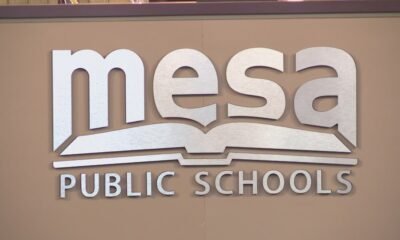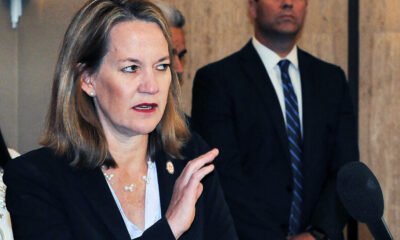arizona
AG Mayes Probes AZ School Vouchers: Uncovering Potential Illicit Payments

The Arizona Attorney General’s Office is currently investigating potential illegal payments within the state’s school voucher program. Allegations have arisen concerning undocumented approvals for reimbursements under the Empowerment Scholarship Account (ESA) program.
Established in 2012, the ESA program provides students’ parents with a debit card or reimburses them for various educational expenses, including private school tuition and homeschooling supplies. In 2022, the program expanded from serving around 12,000 students to becoming available to one million K-12 students statewide. Enrollment surged to approximately 74,000 by the end of the last school year, significantly surpassing the expected 68,000, with costs ballooning to $723.5 million—nearly $100 million over budget.
While Republicans hailed the expansion as a triumph for school choice, Democrats criticized it for diverting public funds to private institutions and religious schools. They also argued it primarily benefited families who had already enrolled their children in private schools before the ESA was available. Earlier this year, Democratic Governor Katie Hobbs’ office reported that about 67% of ESA participants in January had never attended a public school.
The ESA program is administered by the Arizona Department of Education (ADE), under the leadership of Republican Tom Horne, an advocate for private school vouchers. The inquiry is spearheaded by Democratic Attorney General Kris Mayes. Assistant Attorney General Kathryn Boughton informed ESA Director John Ward on July 1 about potential unlawful reimbursements cited in the 2023-2024 ESA Parent Handbook, approved in April 2023.
Concerns were raised about ADE approving supplementary educational materials without verifying their connection to the students’ curriculum. The State Board of Education defines supplementary materials as resources directly relevant to the course of study, intended to enhance or support the curriculum. However, the Parent Handbook suggests that many of these materials do not require documentation confirming their educational relevance.
Boughton emphasized that approving funds for materials unrelated to the actual curriculum goes against the program’s intent and could facilitate fraudulent purchases by account holders or vendors. The ESA program has faced scrutiny for reimbursing extravagant items like pianos and luxury driving lessons. Boughton requested that ADE halt approvals of such materials without documentation, and Ward subsequently agreed.
In his July 3 response, Ward pledged to update the ESA Handbook to incorporate the necessary documentation requirement. He noted that the practice of approving purchases without proper documentation began under the administration of his predecessor, Democrat Kathy Hoffman. The Attorney General’s Office has posed several questions to ADE regarding curriculum documentation and expenditure on supplementary materials from 2019 to 2024.
Ward requested a 60-day period to respond due to the extensive nature of the questions, the need to coordinate with ClassWallet—the program’s financial vendor—and the significant amount of data required. ADE spokesman Doug Nick declined to comment but provided a copy of Ward’s letter to ESA parents dated July 3. In the letter, Ward informed parents of the new requirement for documentation.
Ward reassured parents that while they could still obtain supplementary materials, they now need to ensure these materials are tied to their child’s curriculum. He committed to providing further guidance on how to submit the required documentation.
“We understand that change can be frustrating, but ADE must comply with the law as directed by the Attorney General’s office,” Ward concluded in his letter.


















